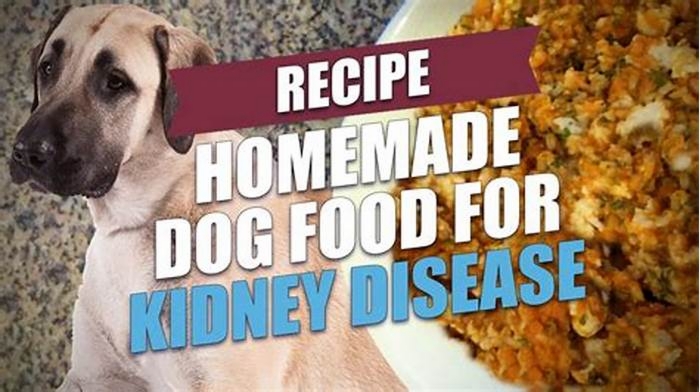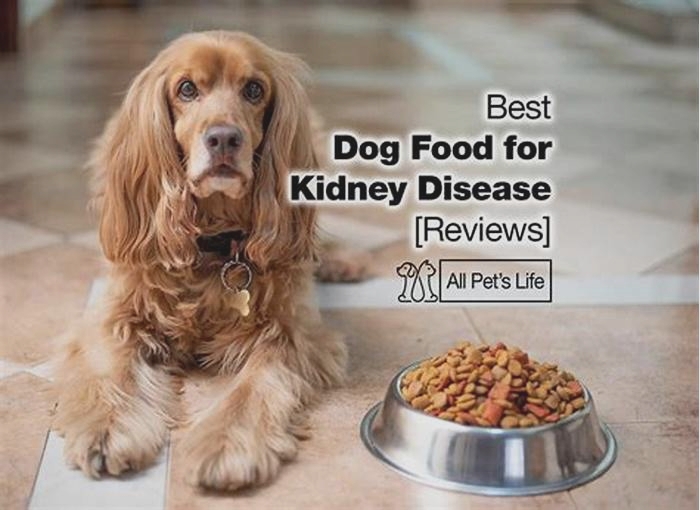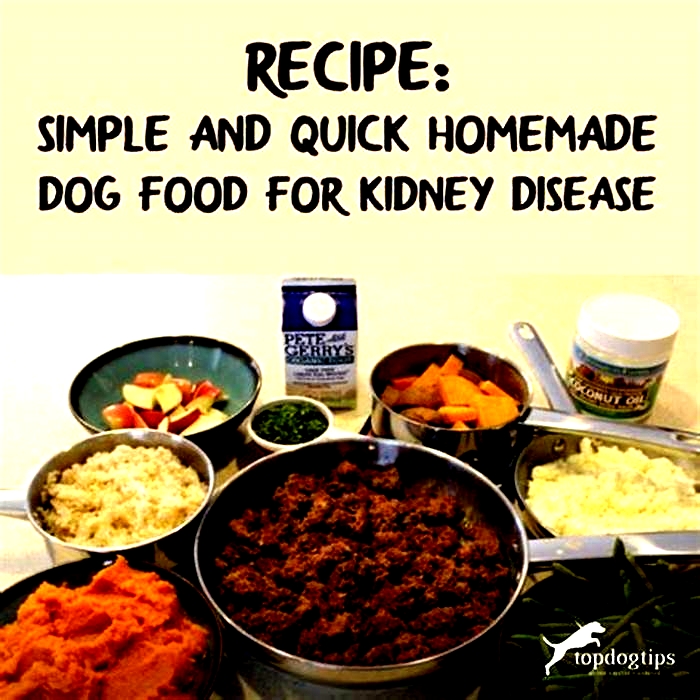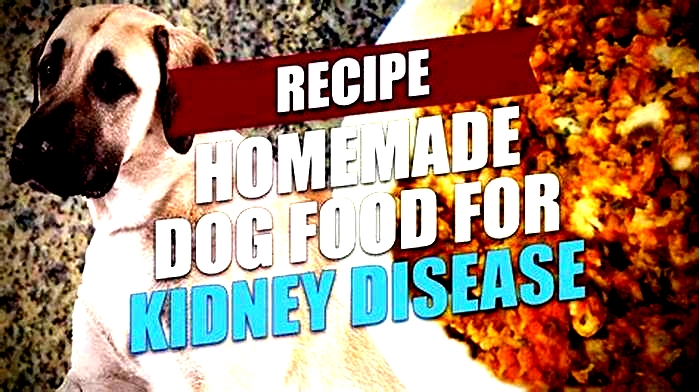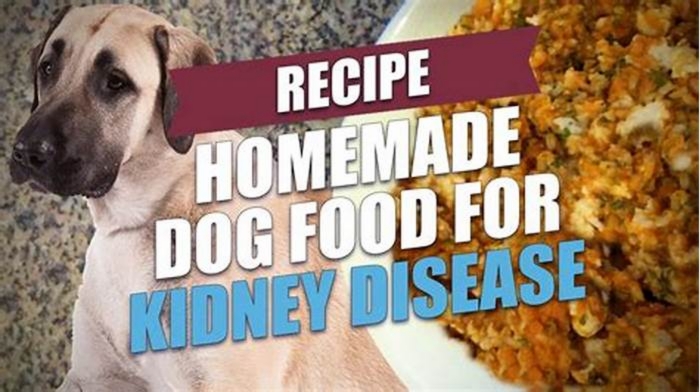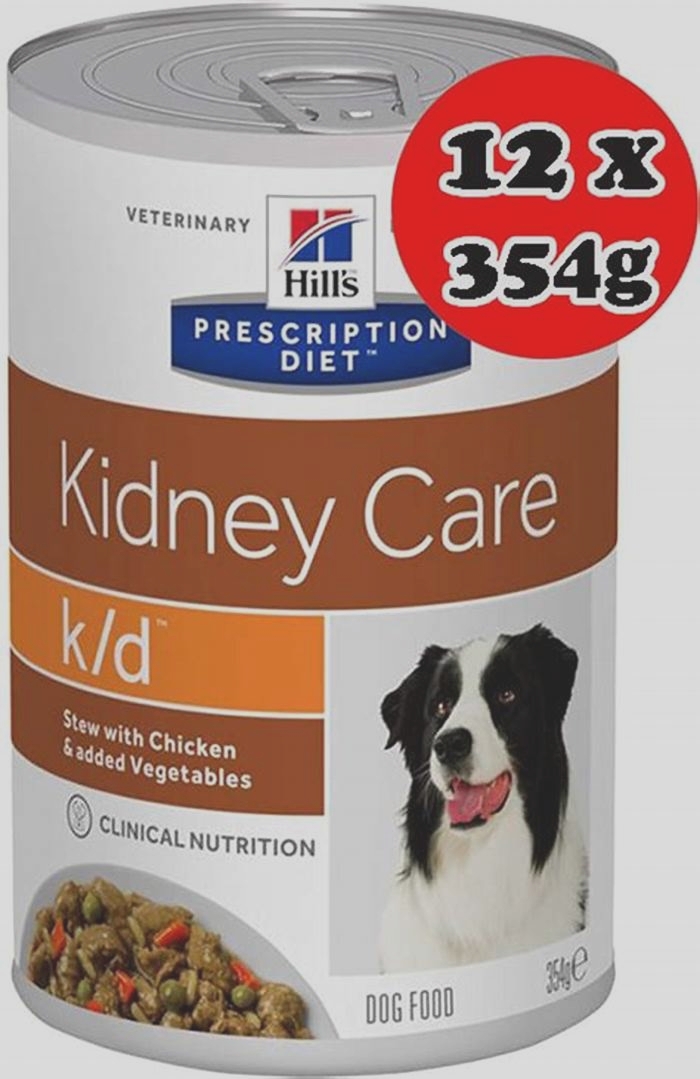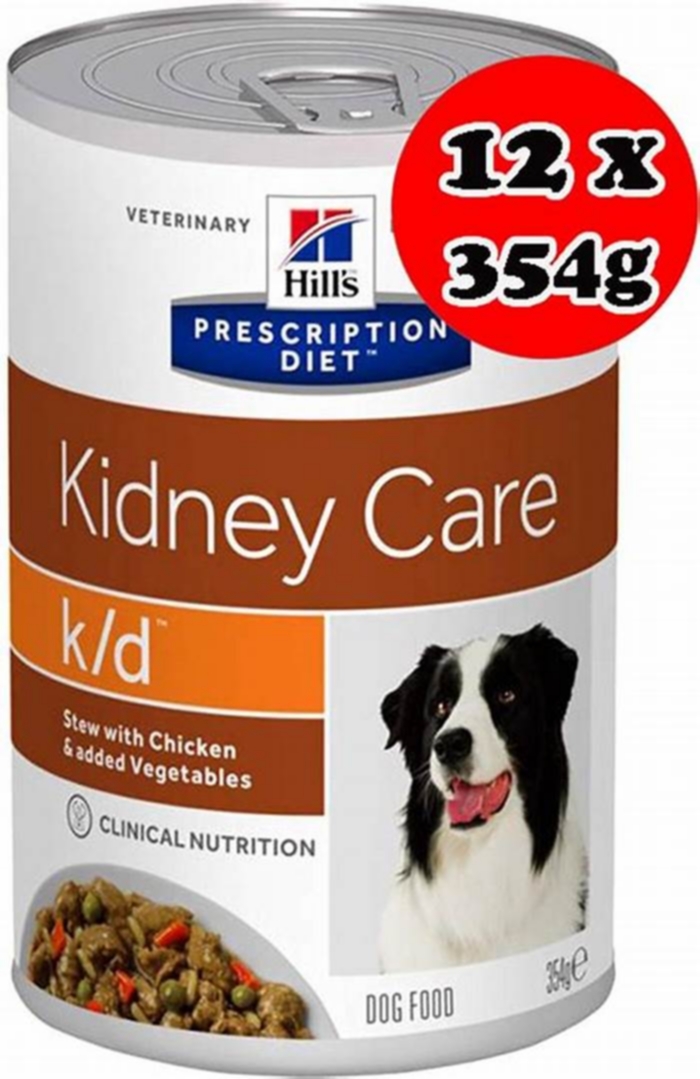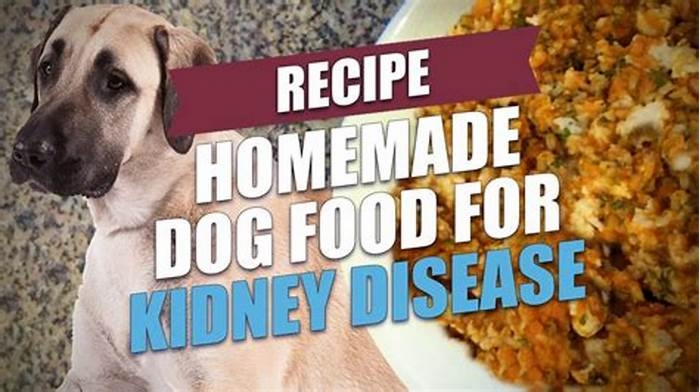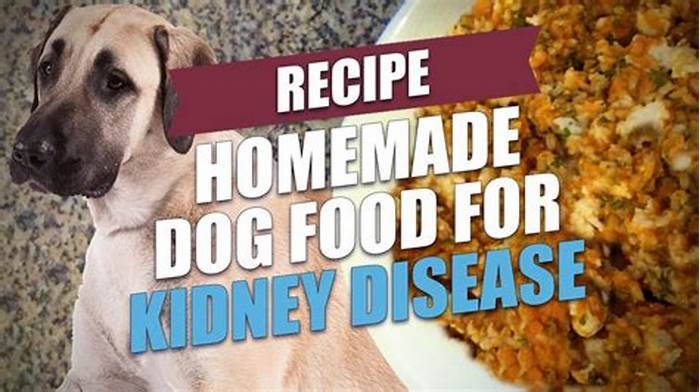homemade kidney friendly dog treats

The Best Dog Treats for Kidney Disease (Low Protein)
If your dog received the diagnosis of kidney disease, its diet would change. Your vet is likely to prescribe a low protein diet to relieve the strain on kidneys. Occasional snacks are still acceptable on this meal plan, as long as you only use low protein dog treats.

Acceptable Foods and Ingredients
A dog with kidney disease will have specific dietary adjustments. The three most common ingredients that need to be monitored are:
- Phosphorus
- Protein
- Sodium
This applies to regular meals and treats. All kidney disease dog foods are formulated to be low in these three ingredients, and the same should apply to whatever treats you choose.
Note that it's recommended that you do not give your pet any treats until the transition to your dog's new therapeutic diet for kidney disease is complete.
Once your pet has successfully adjusted to its new meal plan, you can add in low protein dog treats that represent no more than 10% of a dog's recommended daily caloric intake.
A canine nutritionist or vet can provide you with that calorie guideline.
For dogs with kidney disease on a low protein meal plan, popular edible chews like rawhide and pig's ears are not recommended.
What's in the Refrigerator?
You don't have to buy commercial dog treats for kidney disease. There are some things in your refrigerator-that many dogs love, and they will go well with your pet's new low protein diet.
Some of those foods include:
Similarly, you can choose to feed your dog a homemade diet that's specifically made for kidney disease. However, going this route means more work for you during the initial stages.
It's essential to consult with a vet or canine nutritionist and make sure you know how much to feed a dog and what supplements to include so the diet is well-balanced.

Best Dog Treats for Kidney Disease (Low Protein)
While most dog treats are actually high in protein (since healthy dogs need them), several kidney disease dog treats will be lower in protein.
The below list of best dog treats for kidney disease does not constitute recommendations but rather a starting place for your shopping; consult with your vet before buying them.
Mattie's Healthy Treats for Dogs with Kidney DiseaseCrude Protein: 6.8%
Find it on Amazon ($12.99, 16 oz bag)Unavailable on Chewy
Prescription-based treats aside, these are the only commercial dog treats specifically made to be low protein and designed for dogs with kidney problems.
Mattie's Healthy Treats company is a small family-run business, and they are focused on helping dogs with kidney disease.
The company even donates a portion of sales to the Morris Animal Foundation for canine kidney disease research.
These treats are low in protein and contain no gluten, soy, corn, or wheat. They're flavored with pumpkin and cinnamon. The remaining ingredients include light rye flour, tapioca flour, omega-3 fish oil, and canola oil.
They are about 1 3/4 long and 1 wide, perfect for nearly any sized dog. You can break them into smaller pieces easily.
There's a great success rate in terms of the palatability of these treats, and most dogs will enjoy the taste.
Zesty Paws Cranberry for Dogs TreatsCrude Protein: 0%
Find it on Amazon ($25.97, 12.7 oz container)Find it on Chewy ($25.97, 12.7 oz container)
Zesty Paws Cranberry for dogs is more of a chew supplement than a treat, but most dogs will find them delicious, unlike many other supplements.
These kidney-friendly dog chews focus on UT support, kidney function, and a dog's overall immune system.
They're designed with ingredients that won't strain the kidneys or bladder, and in fact, support their health. There are no artificial flavors, preservatives, corn, grain, or soy.
Cranberries were shown in studies to promote urinary and kidney health in both humans and animals. So each Zesty Paws cranberry dog chew contains 200mg of cranberry concentrate.
Other ingredients that promote comfortable urination and detoxification in dogs include marshmallow root, licorice root, nettle seed, and astragalus. This combination also offers inflammation relief.
The product is FDA registered, and GMP certified in the U.S. Zesty Paws has long been one of our favorite brands of dog treats and supplements, and many other pet owners share the same view.
Hill's Nutrition Dog Treats for Kidney DiseaseCrude Protein: 9.0%
Find it on Amazon ($7.26, 12 oz bag)Find it on Chewy ($7.26, 12 oz bag)
When it comes to veterinarian-recommended dog treats for kidney disease, Hill's Science Diet is often at the top of the list because it invests a lot into scientific research and designing their foods and treats following an evidence-based approach.
These low protein dog treats are a good example of that, where they allow pets with kidney problems to enjoy an occasional snack while also providing support for their kidneys, heart, and joints.
They might go best with a prescription dog food brand from Hill's, but it's not essential.
Developed by veterinarians and measuring at 35 calories per treat, they're healthy but fairly calorie-dense, so be careful not to overfeed your pet.
This makes them delicious (along with the chewy texture) and means you can't give too many. At 9% crude protein, the main ingredients are chicken and potatoes.
There are added omega-3 fatty acids from fish oil, another benefit for senior or arthritic pets.
Raw Paws Natural Sweet Potato Low Protein Dog TreatsCrude Protein: 4.2%
Find it on Amazon ($12.99, 6 oz bag)Unavailable on Chewy
If prescription dog treats (which require veterinary approval) are not an option, the Raw Paws treats are a great alternative.
Vegetarian, grain-free, low in calories, low in phosphorus, and low in protein (only 4.2%), these are perfect for dogs with kidney problems.
They have only one ingredient dehydrated sweet potato, a complex carbohydrate that's highly digestible for dogs. Most pups enjoy the flavor, and it's a great source of beta-carotene (Vitamin A).
You may think a dog will not enjoy something without any protein in it at all, but it's unlikely to be the case with these. Their smell, sweet taste, and crunchy texture actually make them very appealing.
They're also tiny in size, which means you can give more of these throughout the day or use them for training. Our dogs loved these treats made in the USA by a company with a good reputation.
Pet Wellbeing Dogs Kidney Support GoldCrude Protein: 0%
Find it on Amazon ($37.95, 2 fl oz)Find it on Chewy ($37.95, 2 fl oz)
If low protein dog treats aren't an option, or you're looking for something in addition to that, you can always try a natural supplement like this one.
Kidney Support Gold is a natural product for your dog's kidney health. The ingredient formula helps to promote improved energy levels, normal urination, increased thirst in dogs, and appetite regulation.
All ingredients are organically grown herbs.
The two-ounce bottle is enough for a small or medium dog as a one-month supply. And since it's a liquid, it's easily administered through your pet's meal.
One interesting thing about The Pet Wellbeing company is that their website could be an additional selling point.
They have online assistance, a vet that you can consult with or ask questions about these supplements, or a specific kidney issue in your dog.
Lexelium Kidney and Liver Support Supplement for DogsCrude Protein: 0%
Find it on Amazon ($22.99, 7.5 oz bag)Unavailable on Chewy
Finally, another kidney health supplement option for dogs is this powder, which you can add to meals as a topping or use to make your own low-protein dog treats for kidney disease.
Lexelium liver support is a little different in that you can use it for both your dog and cat's kidney and liver health. This powder is vet formulated and is sugar, soy, and dairy-free.
Ingredients include milk thistle, calendula extract, sprouted wheat, and wheat germ.
All of these have been scientifically proven to promote either kidney or liver health, and you can find references to studies on the Lexelium website.
READ NEXT:How to Feed Dogs With Kidney Disease
Disclosure: Wemay earn affiliate commissions at no cost to you from the links on this page. This did notaffect our assessment of products.Read more hereand findfull disclosure here.
Want to share this?

What Treats Can I Give My Dog With Kidney Disease?
The discussion about diet changes can be overwhelming when your pet is diagnosed with chronic kidney disease. Switching from a diet you may have been feeding for years to a veterinary therapeutic diet is often easier than most pet owners think. Consistently feeding your pet a therapeutic diet for kidney disease can help him to live longer and feel better and you can still have some creativity/flexibility through treats.
Therapeutic diets that are designed for kidney disease have lower amounts of certain nutrients than over-the-counter diets. The most important of these is phosphorus. Other nutrients of importance are sodium, protein, and omega-3 fatty acids. When choosing treat options, we look for similar nutrient profiles. This means choosing treats that are not too high in phosphorus, salt, and protein.
Before changing any feeding strategy, it is important to ask yourself some important questions.
- Have I already transitioned over to a therapeutic diet?
If you are planning to start introducing new treat options, it is best to wait until after you have successfully transitioned your pet over to the therapeutic diet of choice to avoid any conflicts with the transition process.
- How many treats can my pet have each day?
The golden rule is that treats should not comprise more than 10% of the total calorie (kcal) requirement of your pet per day. This comes into play if you prefer to give one very high calorie treat versus several lower calorie treats a day. If you dont know your pets daily calorie needs, ask your veterinarian for help with the calculation.
- Are there special treats made just for pets with kidney disease?
Commercial options unfortunately often change, so there arent specific brands or products that we can recommend without calling to check the latest nutrient content. However, some of the companies that make therapeutic diets also make treats specially designed to be fed to pets with kidney disease that you can ask your veterinarian about.
- If I wanted to check on a specific treat, how would I know what to look for?
Calorie content for commercial treats should be easily obtained from the label, however phosphorus level is not something that you will likely find on the bag. You can call the treat company in order to get this information. For human foods, phosphorus and calorie content can be obtained from the USDA Food Composition Database (https://ndb.nal.usda.gov/ndb/). Treat options should be less than 150 mg phosphorus per 100 kcal and 100 mg sodium per 100 kcal for most chronic kidney disease patients (check with your vet to find out what your pet needs in addition to avoiding high protein).
- What are safe fresh foods I can give?
Another option for treats that many owners find their pets love are some fruit and vegetable options for low phosphorus treats for dogs (and some cats):
| Watermelon | Green beans | Zucchini |
| Apples | Baby carrots | Blueberries |
| Bananas | Broccoli | Carrots |
Other tips:
- Avoid foods notoriously high in phosphorus and protein: most meats, jerky treats, bully sticks, rawhides, pig ears, antlers and real bones.
- To stimulate dogs appetites, you can add sweet items like maple syrup or honey make sure to incorporate these calories into treat allowances.
- Always remember to avoid chocolate, grapes, raisins, avocado, garlic, and onions.
- If your pet has other medical conditions, additional dietary adjustments may be needed for treats. Be sure to talk to your veterinarian or a board-certified veterinary nutritionist who can help you create the most appropriate dietary plan for your pet.
Guest blog by veterinarian Dr. Megan Gibeley in conjunction with Dr. Deborah Linder.

Dr. Deborah Linder, a board-certified veterinary nutritionist, is the head of the Tufts Obesity Clinic for Animals and has had articles appear in Eating Well, the Boston Globe, AARP, SHAPE, and XM Sirius Radio Doctor Channel. She has spoken at national and international conferences and a Capitol Hillbriefing, and is an expert in pet obesity, nutrition communication, and in the human-animal bond.
Want to read more information on feeding your pet?
Subscribe to always know when we add new material!
Recommended Posts

January 18, 2024

December 08, 2023
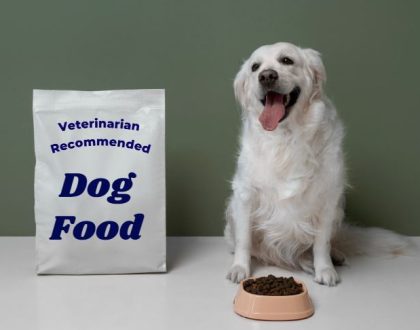
November 05, 2023

